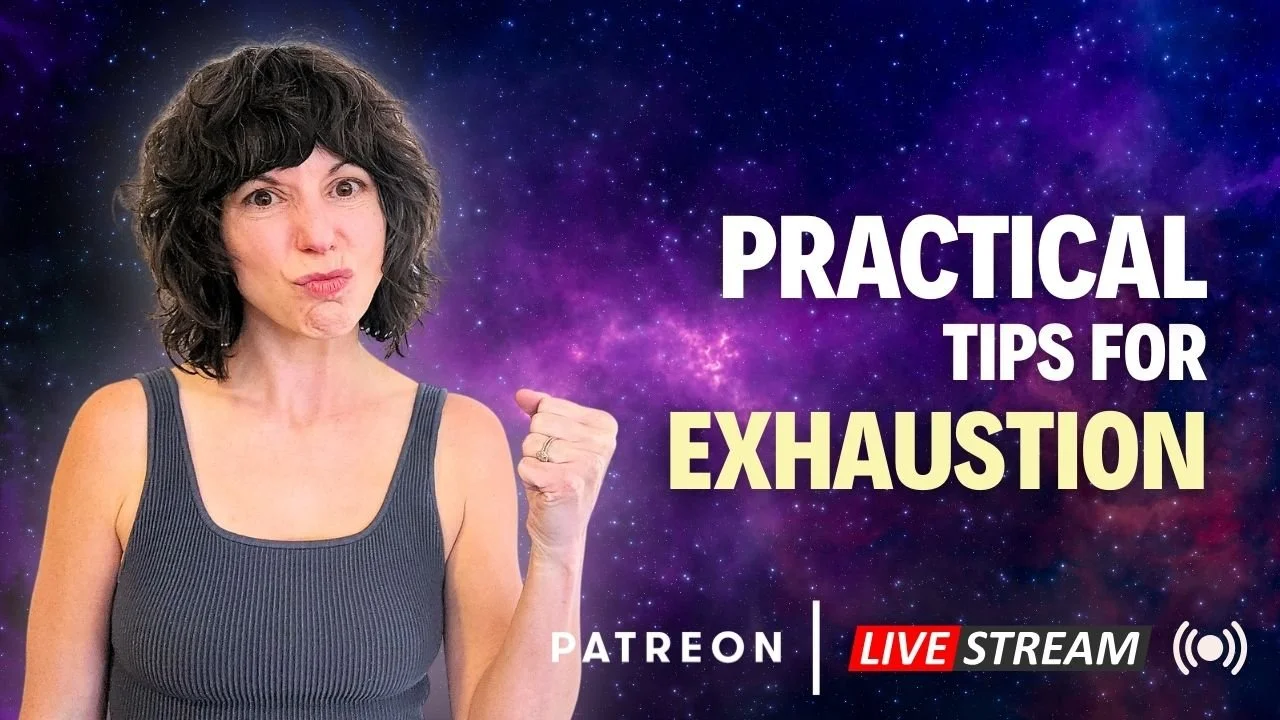Do I Need Help Healing? Exploring the Journey of Self Discovery and Growth
There’s a big question that many people ask themselves: Do I need help healing? Do I need therapy, a coach, a massage therapist, meds, or a support group? These are difficult questions to answer because of the word "need." In actuality, all we really need is air to breathe, water to hydrate, food, shelter, and some touch. A better question to ask is: Am I surviving or thriving? This question has a completely different vibration that opens up the possibility of evaluating where we are on our journey and what kind of help we may want to bring in.
I think of two people swimming towards land after a shipwreck. One is a strong swimmer with experience, while the other barely knows how to swim. They might both make it to land, proving that neither needed help. But if one drowns, then we can say with confidence that they needed help. The truth is that even an excellent swimmer might not make it to land under certain circumstances. Life has a lot to do with getting help, asking for help, receiving help, and allowing help.
As adults, we have the choice to bring in help, even if it's not perfect or ideal. In my life, I am now open to help, and I am a seeker of help with more swiftness and ease. I've done intentional work to separate guilt or shame from the entire concept of receiving help, healing the hyper-independence I developed to survive my childhood and young adulthood.
If you are surviving out there, I know that deep inside, you want to put down that burden and thrive. I'm going to use a list from Susan Forward's book, Toxic Parents, as inspiration to explore what therapy can do to help. This will provide more information to help you make decisions about seeking help, finding the right person, and determining how long to bring in that help.
Deep-seated feelings of shame: A good fit therapist helps you grow into your worthiness and figure out what that is for you, letting go of the guilt and shame that make us feel anxious.
Easily used and exploited by others: A good therapist helps you understand your worth, and from that worthiness, you will no longer allow yourself to be easily used.
Believing that everyone else is more important than you: A good therapist helps you find the space that you get to take up and hold your line, allowing you to stand up for yourself with your head held high, knowing that you are important.
It's essential to find a therapist who resonates with who you are and how you want to be. In our journey of healing, it's crucial to invest in ourselves, even when it feels challenging or impossible. We are worth the time, effort, and resources it takes to move from surviving to thriving. Remember that you deserve help, and you have the power to make the decisions about what kind of assistance to seek and when to seek it.
Let’s explore the various aspects of healing, including codependency, boundaries, trust, and more.
Codependency and the Need for Love
A common issue for those who have experienced dysfunction or trauma is codependency—the belief that the only way to receive love is by catering to others' needs at the expense of your own. This mindset can lead to over-functioning, becoming a doormat, or performing for acceptance. The therapeutic process can help you find the balance between being generous, kind, and giving, while also maintaining self-respect for your adult and inner child parts.
Setting Boundaries and Expressing Anger
Another essential aspect of healing is setting boundaries and learning how to express anger healthily. A well-matched therapist can guide you in understanding your limits, creating boundaries, and developing the art of communication. Furthermore, they can help you manage anger, a powerful and often misunderstood emotion, by providing a safe space to express and process it.
Trusting Your Intuition and Selecting the Right Therapist
When you have been exposed to cruelty or abuse in your past, it can be challenging to trust others, especially when seeking help from a therapist. It's crucial to listen to your intuition when selecting a therapist and be honest with yourself if you don't feel a connection. A good fit therapist should make you feel comfortable and understood while also challenging you to grow.
Reparenting Yourself and Learning to Trust
One of the most critical aspects of healing is learning to trust yourself. This self-trust is built by reparenting yourself through the guidance of a good fit therapist and understanding that, ultimately, you have control over your life. By trusting yourself, you can recognize and address red flags in relationships, set boundaries, and make decisions that prioritize your well-being.
Help from a therapist, coach, or healer can be invaluable in navigating codependency, boundaries, trust, and other aspects of healing. As you continue on your journey, remember that the goal is not to trust others blindly but to trust yourself and your intuition. By doing so, you can create a life where you are free from the cycles of trauma repetition and empowered to make choices that prioritize your well-being.
Episode Tags
- ADD 1
- Abuse 17
- Alcohol 3
- Anger 11
- Archetypes 1
- Bullying 6
- Childhood 37
- Codependency 10
- Covid 4
- Crystal Catalina 4
- Depression 15
- Detachment 2
- Disassociation 4
- Emotions 75
- Existentialism 2
- Faith 1
- Family 28
- Fatigue 4
- Focus 3
- Gratitude 11
- Grief 14
- Guilt 2
- Healers 7
- Healing 52
- High Sensation 4
- Hope 1
- Hypervigilance 7
- Introverts 6
- Lonliness 9
- Love 3
- Manifesting 5
- Manipulation 20
- Masculinity 1
- Men 1
- Mindfulness 39
- Money 10
- Music 3
- Nutrition 2
- Overthinking 8
- PTSD 13
- Parenting 12
- People Pleasing 9
- Perfectionism 6
- Pets 4
- Relationships 21
- Resiliency 14
- Sadness 1
- Self Esteem 19
- Self Love 11
- Self Respect 1
Upcoming Events
Episode Tags
- ADD 1
- Abuse 17
- Alcohol 3
- Anger 11
- Archetypes 1
- Bullying 6
- Childhood 37
- Codependency 10
- Covid 4
- Crystal Catalina 4
- Depression 15
- Detachment 2
- Disassociation 4
- Emotions 75
- Existentialism 2
- Faith 1
- Family 28
- Fatigue 4
- Focus 3
- Gratitude 11
- Grief 14
- Guilt 2
- Healers 7
- Healing 52
- High Sensation 4
- Hope 1
- Hypervigilance 7
- Introverts 6
- Lonliness 9
- Love 3
- Manifesting 5
- Manipulation 20
- Masculinity 1
- Men 1
- Mindfulness 39
- Money 10
- Music 3
- Nutrition 2
- Overthinking 8
- PTSD 13
- Parenting 12
- People Pleasing 9
- Perfectionism 6
- Pets 4
- Relationships 21
- Resiliency 14
- Sadness 1
- Self Esteem 19
- Self Love 11
- Self Respect 1




















